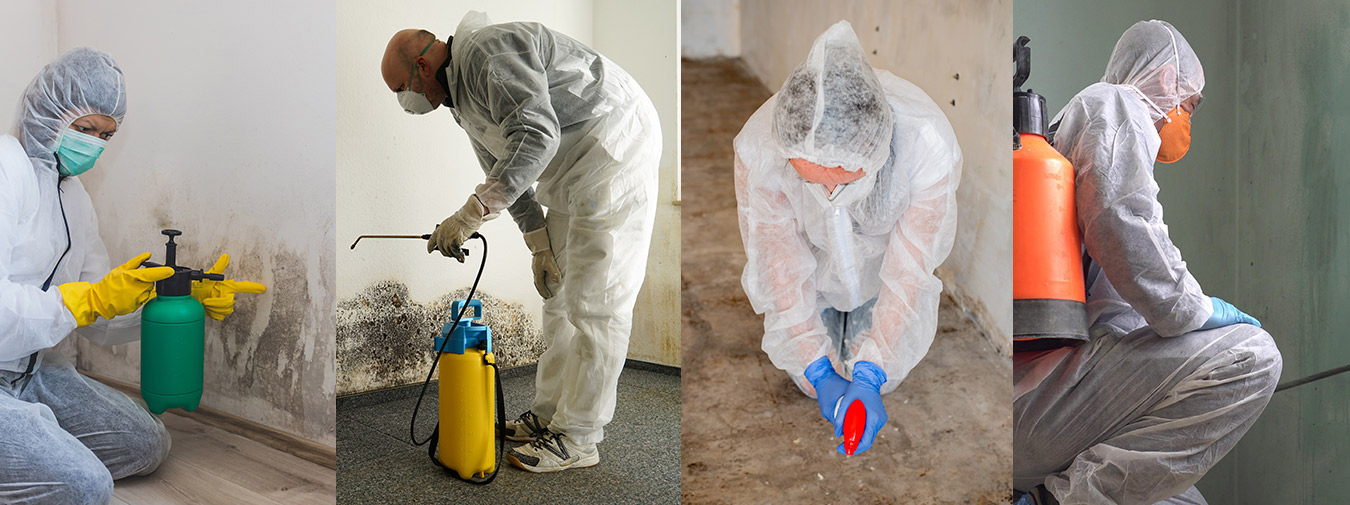Where Should I Look For Mold In My Home?
Living in the Sunshine State comes with many perks – beautiful beaches, warm weather, and a vibrant lifestyle. However, one downside that often lurks in the shadows is the prevalence of mold. Florida’s humid climate provides the perfect breeding ground for mold, which can pose serious health risks and cause damage to your home if left unchecked. To safeguard your family and property, it’s essential to be proactive in identifying and addressing potential mold growth areas. Here’s a comprehensive guide for Florida homeowners on where to check for mold.

Mold Alert: Key Areas Florida Homeowners Should Check for Mold Growth
-
Bathrooms
The combination of moisture and warmth in bathrooms creates an ideal environment for mold to thrive. Inspect areas around sinks, showers, bathtubs, and toilets for any signs of mold growth, including black spots or musty odors. Pay close attention to grout lines, caulking, and any porous surfaces.
-
Kitchens
Like bathrooms, kitchens are another moisture-prone area susceptible to mold growth. Check under sinks, around the dishwasher, refrigerator drip pans, and garbage disposal for any leaks or excess moisture. Keep an eye on food storage areas, especially if there have been spills or leaks.
-
Basements and Crawl Spaces
Florida homes with basements or crawl spaces are particularly vulnerable to mold due to poor ventilation and potential water intrusion. Inspect these areas regularly for dampness, water stains, or visible mold growth on walls, floors, and ceilings. Consider installing a dehumidifier to maintain optimal humidity levels.
-
Attics
Improper ventilation in attics can lead to moisture buildup, especially during hot and humid Florida summers. Check for roof leaks, inadequate insulation, or blocked vents that could contribute to mold growth. Inspect attic walls, rafters, and insulation for signs of water damage or mold.
-
HVAC Systems
Mold spores can easily spread through your home via the HVAC (Heating, Ventilation, and Air Conditioning) system if not properly maintained. Regularly inspect air ducts, filters, and drip pans for moisture buildup or mold growth. Schedule professional HVAC cleaning and maintenance to ensure optimal performance and indoor air quality.
-
Laundry Rooms
Washing machines and dryers generate moisture, creating favorable conditions for mold growth, especially in poorly ventilated laundry rooms. Check behind and under appliances for leaks or water damage. Clean lint traps regularly and ensure proper ventilation to prevent moisture buildup.
-
Window Sills and Frames
Condensation can accumulate on window sills and frames, providing moisture for mold growth. Inspect these areas for signs of water damage, discoloration, or mold growth, especially in rooms with high humidity levels or inadequate ventilation.
-
Roof
Florida’s frequent rain storms and hurricanes can cause roof leaks, leading to water intrusion and mold growth in the attic or ceiling cavities. Inspect your roof for missing shingles, damaged flashing, or signs of water penetration. Address any issues promptly to prevent further damage and mold growth.
-
Exterior Walls
Check the exterior of your home for cracks, gaps, or areas where water could penetrate and cause moisture buildup. Inspect siding, stucco, and brick for signs of water damage or mold growth. Ensure proper drainage away from the foundation to prevent water from seeping into the walls.
-
Outdoor Areas
Mold can also thrive in outdoor spaces, especially on decks, patios, and outdoor furniture exposed to humidity and rainfall. Regularly clean and inspect outdoor surfaces for mold growth, and ensure proper drainage to prevent water from pooling around your home’s foundation.
By being vigilant and proactive in inspecting these key areas of your home, Florida homeowners can minimize the risk of mold growth and protect their families and property from potential health hazards and structural damage. If you discover any signs of mold, address the issue promptly by calling a mold expert. Remember, early detection and prevention are key to maintaining a healthy and mold-free home in the sunshine state.
Need Help Getting Rid of Mold?
At TCB Enviro Corp, we know that mold can be a significant concern for Florida homeowners, especially in the state’s humid climate. That’s why we offer a full range of services to protect your home and health, including professional mold inspection, comprehensive mold remediation, water damage cleanup, and indoor air quality testing. Our certified experts are dedicated to assessing, treating, and preventing mold in even the toughest-to-reach areas. Don’t let mold threaten your peace of mind—reach out to TCB Enviro Corp today for reliable, effective solutions to keep your home safe, healthy, and mold-free!







